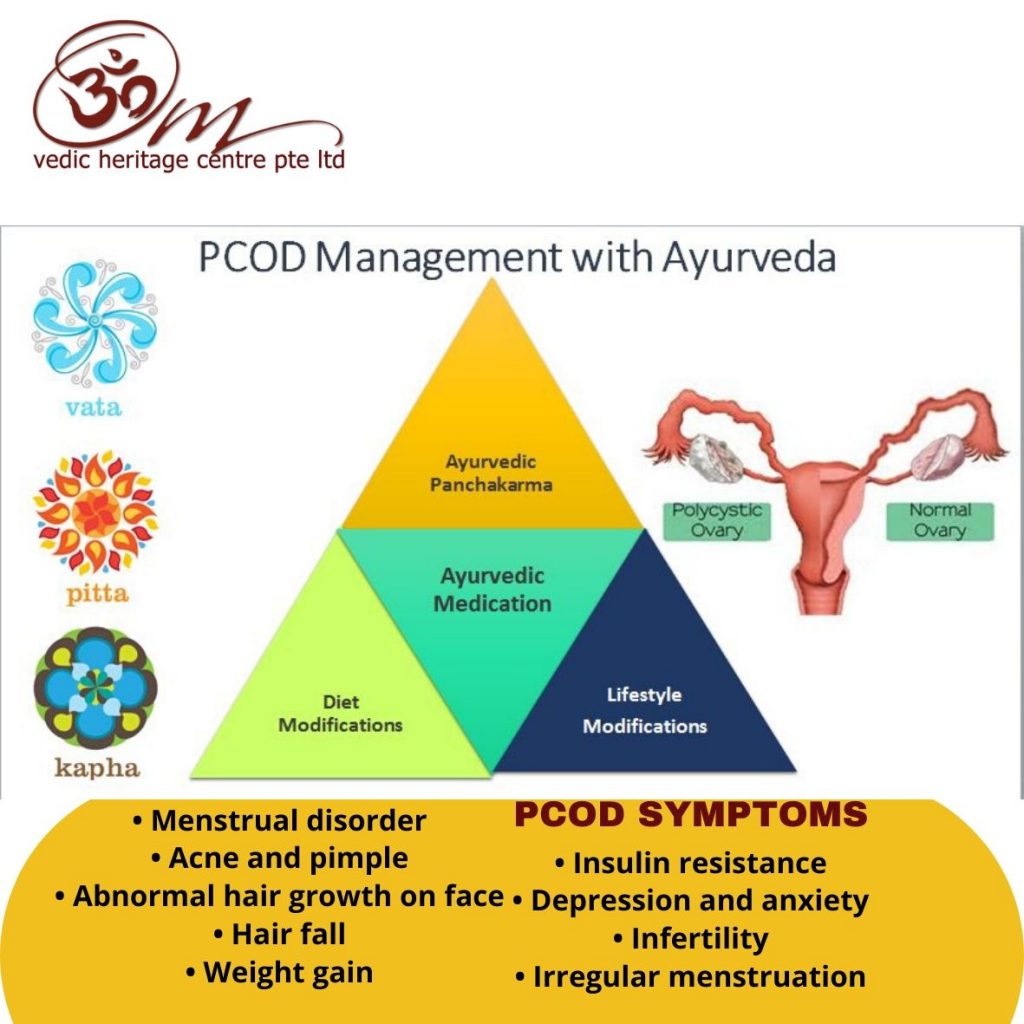
Hormonal imbalances are quite common these days due to sedentary life style, poor diet, lack of exercise and stress leading to several chronic diseases.
PCOD: Poly cystic ovarian disease is a prevalent hormonal disorder among young women today. Allopathy approaches this as a localized poly-cyst. In this condition, single or multiple cysts can appear in the ovaries, which leads to irregular menstrual cycle. Due to this condition, size of ovaries increases and produces excessive male hormone called testosterone and female hormone called estrogen. This leads to irregular menstrual cycle, prevent ovulation, obesity and infertility. Treating this disease with hormonal medication and sugar control drugs lead to several side effects.
AYURVEDIC INTERPRETATION: Ayurveda considers poly cystic ovarian disease as a kapha and vata disorder leading to imbalance in the function of ovulation. Imbalance kapha affects the jataragni (digestive fire) which in turn leads to imbalance in the dhatwagni (tissue metabolism). Dhatwagni is responsible for nourishment and formation of tissue that it resides in. In pcod condition rasa dhatu (lymph & plasma), meda dhatu (adipose tissue) and artava dhatu ( female reproductive system) are affected. Ama (toxin) entering into the artava dhatu disturbs the function of ovaries, thus leading to the formation of cysts in the ovaries.
SYMPTOMS:
- Menstrual disorder
- Acne and pimples
- Abnormal hair growth on face
- Hair fall
- Weight gain
- Insulin resistance
- Depression and anxiety
- Infertility
- Irregular menstruation
CAUSES:
- Family history
- Unhealthy diet and diet habits
- Life style
- Overweight
TREATMENT:
- Diet and life style changes play a vital role in the treatment
- Panchakarma
- Vamana
- Virechana
- Vasti
- Uttara vasti
- Snehapana
- Abhyanga
- Swedana
- Kizhi
- Shirodhara
- Varanadi kashayam
- Guggulutiktaka kashayam
- Saptasaram kashayam
- Asokarishtam
- Kumaryasavam
- Kanchanara guggulu
- Chandraprabha gulika
- Kalyanaka gritham
- Phalasarpi
- Pushyanuga choornam
- Avibathi choornam

